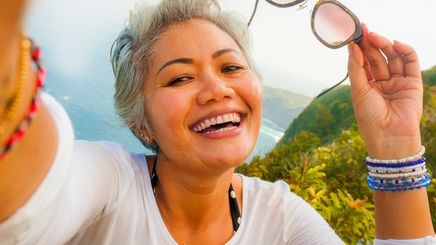
Aging is a beautiful journey of growth. You become wiser, spend less time sweating the small stuff, and learn to enjoy life a bit more. It does, however, come with that take some getting used to. Women approaching menopause age lose estrogen, which makes skin prone to thinning, , and wrinkling. Here are some of the changes you can expect and how to deal with them.
Menopause 101
Menopause becomes official when you go through a whole year without your period. The specific age varies from person to person, but a woman will typically transition into menopause anywhere between the ages of 45-55.
Menopause will bring about hormonal changes, such as hot flashes, fatigue, , bladder control, and vaginal dryness or pain. You might feel moodier or more irritable around this time, so give your household a heads-up.
A hysterectomy or the removal of ovaries might also cause menopause. If you have your uterus or ovaries removed and are not taking hormones, your body might go into menopause prematurely.
Just when you think the cycle is over, after menopause, your body goes through a period called post-menopause. Post-menopausal women are at higher risk of heart disease and osteoporosis, so getting enough exercise and nutrients, particularly calcium for bone health, is crucial.
How Does Menopause Affect Your Skin?
When you go into menopause age, your skin undergoes various changes because of lower estrogen levels. Here are some of them.
Skin becomes thin and dry.
During menopause, your skin loses more quickly. show that women’s skin loses 30% of collagen during the first five years of menopause. This decline becomes more gradual in the following twenty years, decreasing to a 2% collagen loss. Less collagen leads to thinner, less elastic, and drier skin.
You’re more likely to see these effects on your skin sooner if you’ve been neglecting your SPF. Age spots and areas of darker skin might become more visible on your face, hands, neck, arms, and chest. A drop in estrogen levels will also make your skin thinner and prone to bruising.
Menopause also affects your skin’s ability to retain water, making your skin drier than usual. Switching up your products can help. For example, moisturizing bars are a good alternative to soaps that can be harsh on dry skin. Dove Beauty Bar Sensitive cleanses the skin without stripping it of its natural oils. It contains ¼ moisturizing cream and is fragrance-free and hypoallergenic.
Choose a moisturizing cleanser like Dove Deeply Nourishing Body Wash to seal in hydration. As for your skin care regimen, choose products that contain ingredients like retinol to help increase collagen production.
You get sudden acne breakouts.
Pimples and can also result from . This can happen before or during menopause. Address your breakouts gently with light, cleansing, and non-stripping treatments. At 50, your skin is more prone to sensitivity, rashes, and irritations. Wounds will also take more time to heal as well. If you don’t see any improvement in wounds or inflamed skin, consult your doctor to avoid the risk of infection.
You grow more facial hair.
As estrogen falls, you might also notice an increase in facial hair. You’ll have more unwanted hair under your chin, along your jawline, or above your lip, so you might find yourself visiting your waxing salon more often. If waxing is too abrasive for your thinning skin, talk to your dermatologist about other options like or creams. Of course, you could also just let it be.
Conversely, hair thinning is another effect of menopause. Factors such as stress, poor diet, and lack of sleep, also contribute to hair loss, so make sure your body gets a good amount of rest and nutrients during this time.
As the late writer and poet Maya Angelou once said, “Mostly, what I have learned so far about aging, despite the creakiness of one’s bones and cragginess of one’s once-silken skin, is this: Do it. By all means, do it.” As you approach the new dawn of the menopause age, go through this new stage with the same boldness and grace, wrinkles and all.